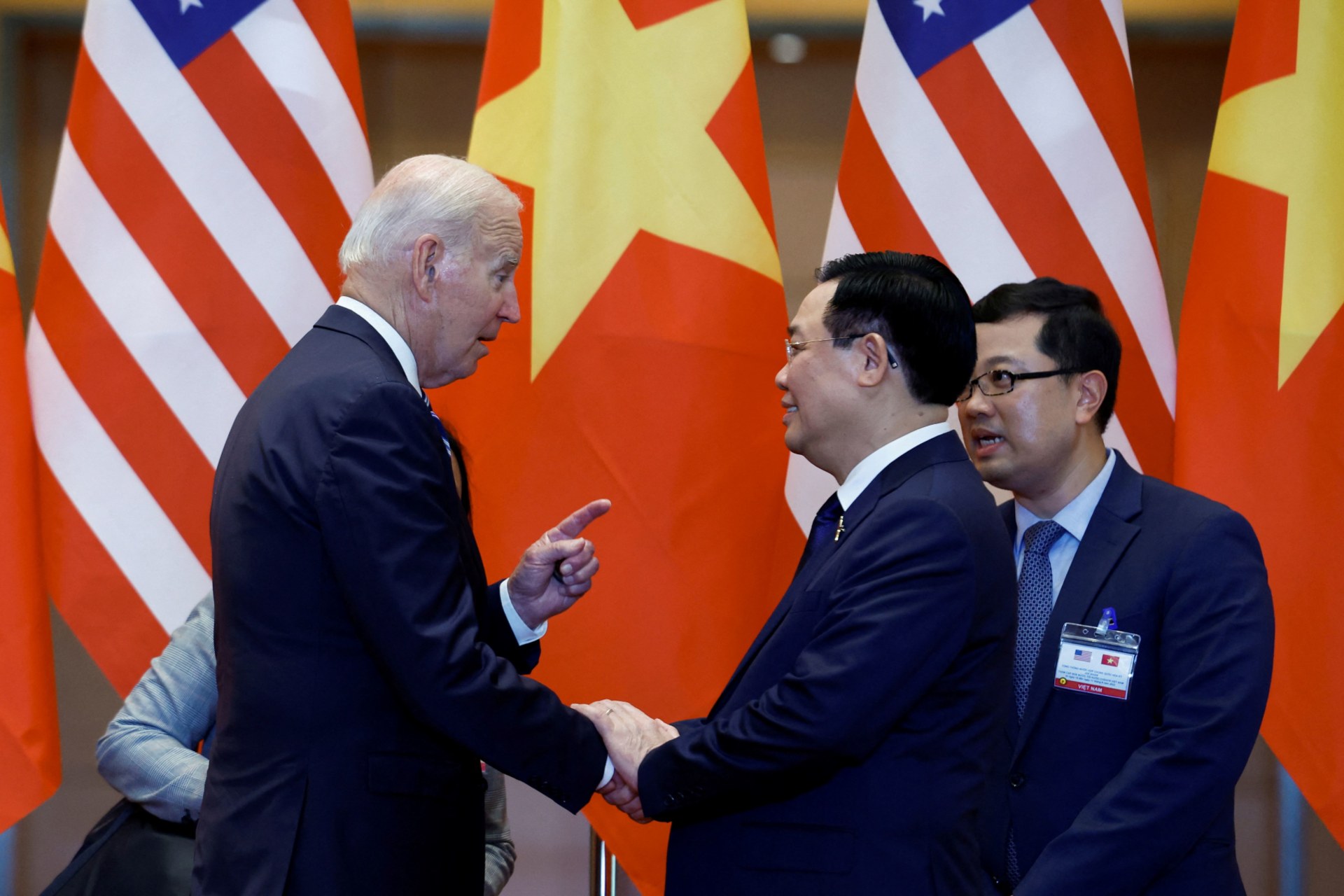As Vuong Dinh Hue Resigns, Vietnamese Politics Get Even Messier
Resignations in Vietnam’s top political leadership have exposed widespread societal corruption and prompted a succession crisis for the party.

By experts and staff
- Published
Experts
![]() By Joshua KurlantzickSenior Fellow for Southeast Asia and South Asia
By Joshua KurlantzickSenior Fellow for Southeast Asia and South Asia
For several years now, Vietnam’s elite politics, once opaque, impenetrable to most outsiders, and seemingly united in a fairly successful (in terms of maintaining authoritarian rule while also achieving economic development) type of autocracy, has turned upside-down. As I noted in a recent article for World Politics Review, that stability, which allowed Vietnam to take a more prominent role in leading the Association of Southeast Asian Nations (ASEAN), bolster ties with other regional partners, and present itself as a safe and efficient location for foreign investment, was critical to Vietnam’s strong growth trajectory and its ability to punch above its weight in regional security affairs.
That political stability seems to be collapsing quite rapidly. In recent years, two Vietnamese presidents and two prime ministers have stepped down, facing corruption charges. Former President Vo Van Thuong resigned in March after only serving about a year in the job; he quit when other leaders announced he had committed “violations,” which is usually shorthand for some type of corruption. Top financial figures have also fallen in massive corruption cases, showing the rot in the economy. One of the biggest tycoons in the country, Truong My Lan, recently was sentenced to the death penalty in a major fraud case involving one of the country’s premier banks. (Vietnam has the death penalty for a far wider range of crimes, including economic crimes, than most countries that maintain the death penalty as a punishment.)
The head of Vietnam’s parliament, typically one of the four figures who would head up the consensus-style top leadership, faced the same fate this past week. As Al Jazeera reported, “Vuong Dinh Hue, the head of Vietnam’s parliament, has resigned over unspecified ‘violations and shortcomings,’ the ruling Communist Party has said.” Again, these phrases almost surely mean he was involved in corruption of some sort.
Some anti-corruption activists may applaud his resignation. However, it remains unclear whether there is an effective anti-corruption drive within the top of the ruling party or if so many of the top leaders are generally corrupt in some form that factions are using the anti-corruption effort to remove their enemies. Either way, Vietnam ends up appearing as if it is governed by an alarmingly high number of corrupt politicians. It struggles to maintain a stable leadership team precisely when ASEAN requires Vietnamese leadership the most. Further, the country is increasingly caught in the crossfire between China and the United States. With a potential change in administration in Washington, tensions with China could escalate significantly, placing Vietnam squarely in the middle of the fray. In addition, the extensive corruption within Vietnam’s political and economic systems may eventually dissuade foreign investors. Until now, foreign investors have made Vietnam one of the biggest beneficiaries of efforts to move operations out of China.
What’s more, the downfall of another influential figure within the Vietnamese leadership, who could have ascended to the position of general secretary of the ruling party—the most powerful role—further complicates the future power structure. Nguyen Phu Trong, the party’s current general secretary, has consolidated a vast amount of power, nullifying much of the consensus-style leadership of the past. But he is elderly and often appears frail in public appearances.
Once masterful in planning leadership transitions, Vietnam appears to have no clear plan after Nguyen Phu Trong is gone. Its political class is devouring itself, further limiting the possibilities of talented people taking the top jobs in the next administration—and possibly rolling back some of Nguyen Phu Trong’s efforts at turning the Vietnamese state into one-man rule.
